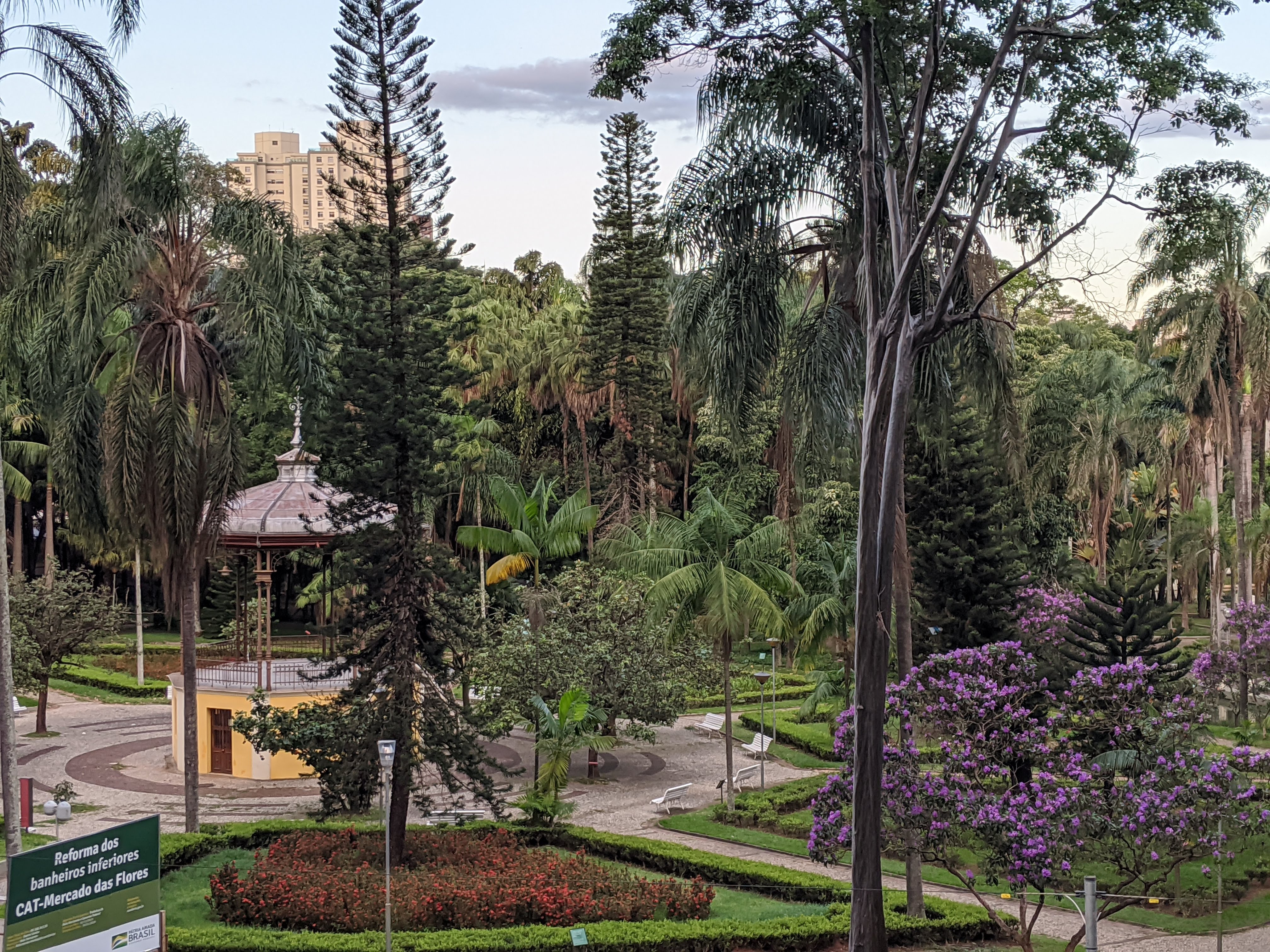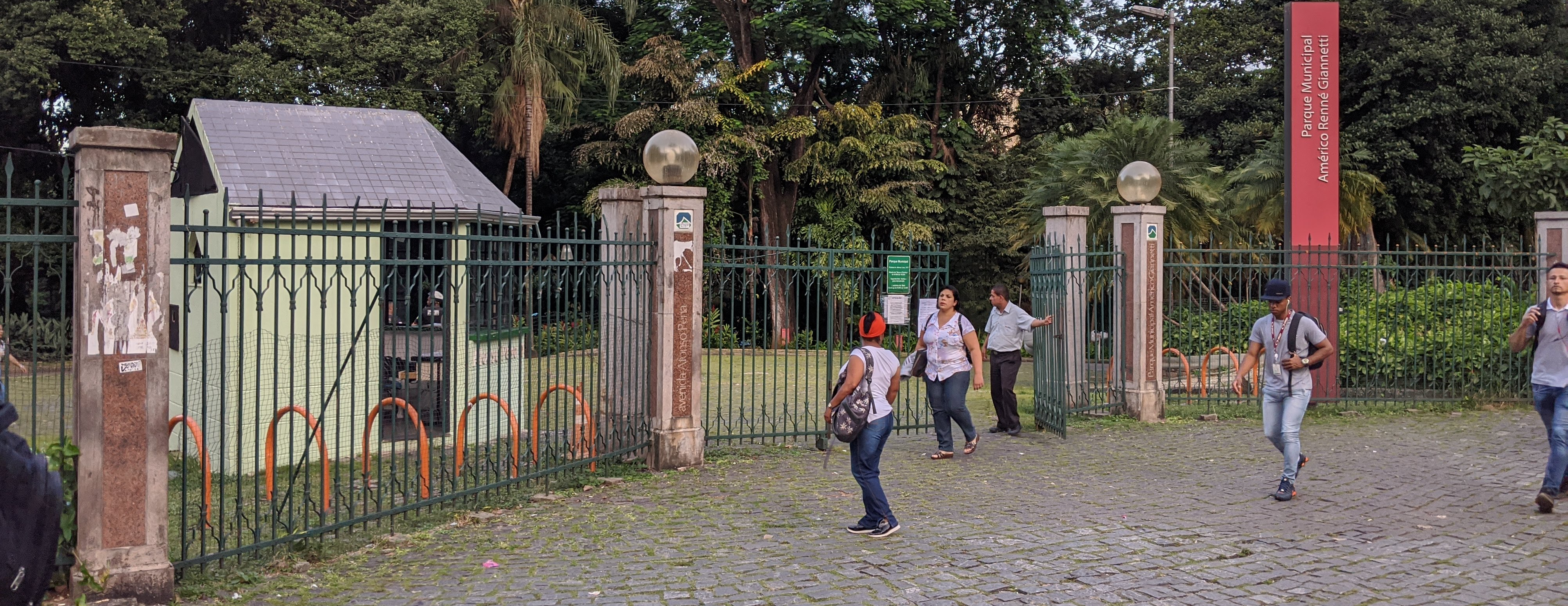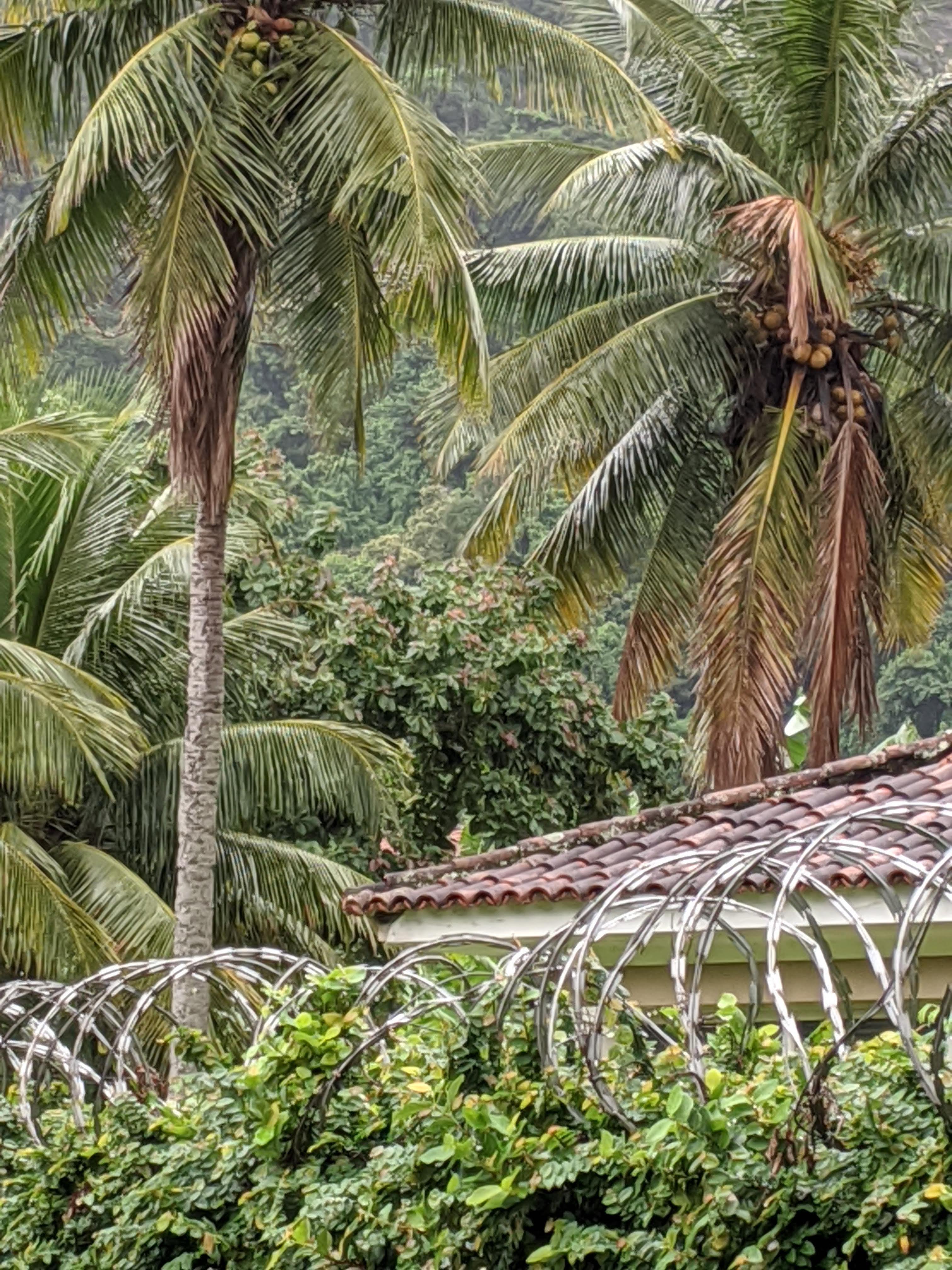|
Today's Opinions, Tomorrow's Reality
Behind the Razor Wire By David G. Young Belo Horizonte, Brazil, February 18, 2020 -- Rising inequality risks trading the American Dream for a third world way of life. The Municipal Park occupies a prime spot in the heart of Belo Horizonte, providing an oasis for residents and visitors much like New York's Central Park or Washington's national Mall. The tropical climate in Brazil allows the park to grow a stunning variety of Flora. But that is hardly the park's most striking difference.
Each day at 6pm police round up everyone inside and push them out, locking the park behind a seven foot high spiked iron gate. On Mondays, the park is not open at all, saving costs of paying police to patrol its grounds and man the guardbooths at its entrances.
This is one of the many ways Brazil has learned to live with its infamous disparity of wealth. After the park gates close and dusk settles in, homeless people huddle under overhangs of vacant buildings downtown on mattresses and blankets strewn along the sidewalk. In tony neighborhoods across the country, wealthy homeowners build high concrete walls topped with razor wire and electric fencing. This keeps the have-nots away from the haves. While the United States has not commonly reported to razor wire and park closures to address its growing inequality problem, Brazil provides an ugly picture of what the future may hold if America fails to get its problem under control. Like Brazil, South Africa also commonly features razor wire compounds for the wealthy and middle class. It has the highest income inequality in the world according to the World Bank with a Gini index of 63. Brazil is not far behind in the rankings with a score of 53. The United States is much further back with a score of 41.5 as of 2016, but this makes it by far the most unequal developed country in the world. Canada and Western European countries all have scores in the mid-30s or even high 20s.1
What's more concerning is that America's inequality is growing. Again referring to the Gini index, the United States used to be less of an outlier, with scores in the 30s as recently as 1992 when it stood at 38.2.2 Anxiety about this problem has fueled the rise of lefty populists like presidential candidate Senator Bernie Sanders who proposes spreading money around via draconian tax increases and large public spending programs to benefit the poor. Moderate and conservative Americans are right to oppose these measures, but should not make the mistake of pretending the country's growing inequality is not a problem. Yes, average incomes are rising in America and many talented, hard-working and connected Americans are doing quite well. But there is a large chunk of the country that is falling behind and getting angrier by the year.
If current trends continue, the day will come where the angry masses will start climbing over the fences of the wealthy in a desperate attempt to get their share of the pie. If you are a well-off American, the easiest solution is to build a high concrete wall topped with razor wire. But is this really the best way to enjoy your affluence? Is this what we want America to be? Fixing America's inequality problem will require more than the simple bromides of the left. It requires lots of hard work and thoughtful experimentation. Maybe vocational training and community college should be made freely available to the working class. Perhaps tax credits can be provided for people relocating from depressed areas. Certainly building regulations should be relaxed for developers constructing affordable housing. But make no mistake, finding a solution is critical to save the American Dream. It will allow us to sit on our front porches and wave hello as out fellow Americans pass by, rather than cowering behind a razor wire wall hoping they will go away. Notes: 1. Index Mundi, GINI index (World Bank estimate) - Country Ranking, As Posted February 18, 2020 2. Trading Economics, United States - GINI Index, As Posted February 18, 2020 |





